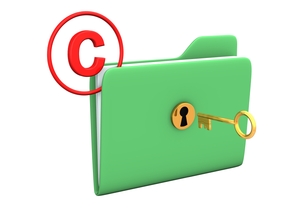Posted In: Insurance Recovery and Litigation
 Insurance Blog: Reimburse Your Insurer? Look to the Recent Decision by the Nevada Supreme Court
Insurance Blog: Reimburse Your Insurer? Look to the Recent Decision by the Nevada Supreme Court
on May 6, 2021
The Nevada Supreme Court recently found, under certain circumstances, an insurance company can obtain reimbursement of defense costs from its policyholder if it was later determined no coverage was afforded – even when the insurance policy does not allow for such recoupment....
Posted In: Insurance Recovery
 Insurance Blog: Home is Where the Parent is
Insurance Blog: Home is Where the Parent is
By Anastasia J. Wade on September 5, 2018
When determining whether there is coverage under an insurance policy, the governing state law under which the policy is analyzed can be extremely important. This is because the application of clauses, amendments, and exclusions can be different depending on which state's laws apply....
 Implied Disparagement: How "Falsely" Advertising Your Own Product May Be A Covered Claim
Implied Disparagement: How "Falsely" Advertising Your Own Product May Be A Covered Claim
on January 24, 2017
"My alleged false statements about my own product actually disparaged the plaintiff's product" is how Vitamin Health, Inc. interpreted Bausch & Lomb's complaint against it for false advertising. Vitamin Health is currently seeking coverage for defense costs from Hartford Casualty Insurance Company under advertising injury coverage included in its insurance policy. See Vitamin Health, Inc. v. Hartford Cas. Ins. Co., Case No. 15-10071, 2016 WL 2622353 (E.D. Mich. May 9, 2016) According to Vitamin Health, its defense costs should be covered by Hartford because the alleged false advertising impliedly disparages Bausch & Lomb's product and therefore, is a covered advertising injury claim. The U.S. District Court for the Eastern District of Michigan disagreed and the case is now currently pending in the U.S. Court of Appeals for the Sixth Circuit. Vitamin Health's argument, however, raises an interesting issue: Can a claim alleging false advertising of the insured's own product be entitled to insurance coverage on the theory that the false statement impliedly disparages another's product? If so, at what point does a statement disparage another's product by implication?...
 An Unknown Known: Conflicting Views on the Knowing Violation Exclusion to Insurance Coverage of Defense Costs in Advertising Injury Claims
An Unknown Known: Conflicting Views on the Knowing Violation Exclusion to Insurance Coverage of Defense Costs in Advertising Injury Claims
on March 25, 2016
It is extremely rare to find a complaint for any type of advertising injury claim that does not allege that the defendant acted willfully, intentionally and/or with malice. In fact, such complaints are often replete with these types of allegations for a couple of reasons. In some cases, the type of claim may require that the plaintiff prove an intentional or malicious act to recover. More often than not, though, the plaintiff is looking for enhanced damages in the form of punitive damages or, in cases involving intellectual property infringement, treble damages and attorneys' fees....
 Insurance Policy Exclusions: What Constitutes Prior Publication?
Insurance Policy Exclusions: What Constitutes Prior Publication?
on October 28, 2015
As advertising injury coverage has become a standard in CGL policies, so have the exclusions modifying those types of coverages. One of those exclusions is known as the prior publication exclusion. The typical prior publication language excludes "‘personal and advertising injury' arising out of oral or written publication of material whose first publication took place before the beginning of the policy period." The result of the prior publication exclusion is to bar coverage for wrongful behavior that began prior to the effective date of the insurance policy, even if it continued into the policy period. The insurers' justification for this exclusion is that if the harm or wrongful behavior has already manifested itself, the harm is not fortuitous and there is nothing to insure....
This Blog is intended to provide information generally and to identify general legal requirements. It is not intended as a form of, or as a substitute for legal advice. Such advice should always come from in-house or retained counsel. Moreover, if this Blog in any way seems to contradict advice of counsel, counsel's opinion should control over anything written herein. No attorney client relationship is created or implied by this Blog. © 2024 Brouse McDowell. All rights reserved.



